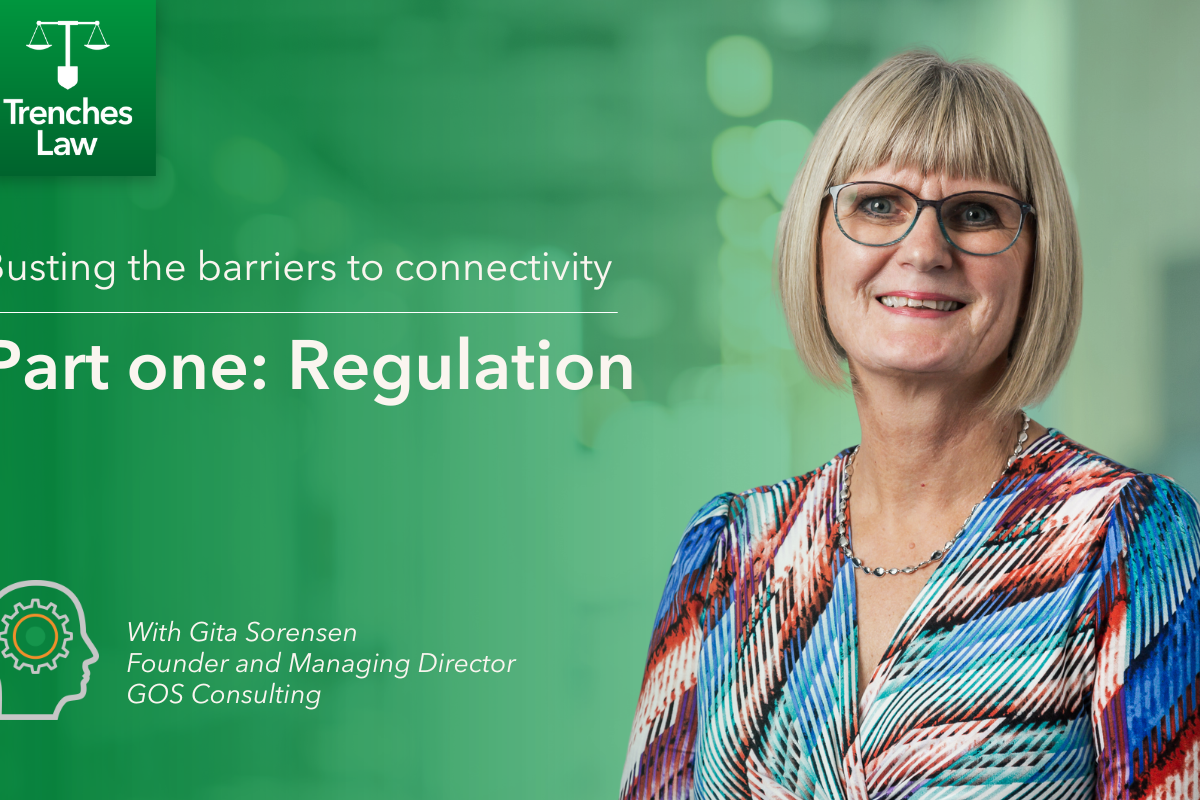Why is collaboration still being overlooked when rolling out full fibre networks?
Connectivity is a complicated market but one that could be significantly simplified with greater stakeholder collaboration, believes Chris Wood, founder of Figure Telecoms. He’s the latest guest blogger in the Trenches Law hot seat. Chris, over to you…
It’s a topic we’ve repeatedly seen dominate the tech headlines, in both the business and consumer environment – a gigabit-capable Britain.
And of course, great progress is being made towards this ambitious target – although not, perhaps, at the pace required to truly give all communities the connectivity they really need, when they need it.
Telecoms – a tricky old world
The reasons for these delays are multifaceted, and sadly there is no easy fix. But the often-complex nature of network roll-outs, the hurdles that have to be overcome along the way, and the number of stakeholders involved in the process, means that the world of telecoms is tricky enough. So, wouldn’t it be that little bit easier if we all communicated more?
The glaringly obvious lack of collaboration in industry, was the very reason I set up Figure Telecoms. Yes, there were some savvy players in the sector who were already great at communicating to successfully get builds over the line. But, generally speaking, there are also many ISPs, developers, landowners, housing associations and members of the general public, who don’t talk as much as they need to, because of seemingly conflicting objectives and priorities along the way.
We formed our team to project manage everything from the inception and design of networks through to their completion. We have worked hard to open up dialogue, build respect and empathy, and encourage work towards a common goal – the gigabit-capable future. Core to our service, is bridging the collaboration gap.
And our work is proof that it’s possible to do this.
Overcoming resistance
Resistance to collaboration is perhaps understandable, especially among ISPs who fear the competitive threats posed by major players. But developments such as Openreach’s Physical Infrastructure Access (PIA) are certainly helping with this.
There is still work to be done though, especially among ISPs who want or need their own on-site infrastructures. Wider stakeholders may also not particularly support the smooth progress of network builds, hence why Trenches Law’s wayleave management is currently in such high demand, for example.
So, we need to keep talking about the importance of working together, and finding a way to keep everyone happy, where possible. Because the risk of NOT collaborating, means services won’t be delivered on time.
The financial implications of any such delays, can be significant. But the risk of dissatisfied customers and possible reputational damage, could be even greater.
Collaboration benefits all
Flip this scenario on its head, and we’ve seen for ourselves that true collaboration, communication, co-operation, and in some instances compromise, can reap benefits for all concerned.
We’re even seeing more forward-thinking new build developers really maximising the value of such collaboration and the free data that comes from it. For example, some are using the pipe to leverage things like EV charging, zero carbon monitoring and WiFi, resulting in a super-smart, ultra-connected development.
They benefit by strengthening their brand image and customer service levels. But ultimately, looping back to my first point, the end users of connectivity have easy access to the bandwidth they need.
So, the killer question is, what could be in it for you? I’d love to see a mindset shift whereby people’s first thought is – what advantages could collaboration bring?









